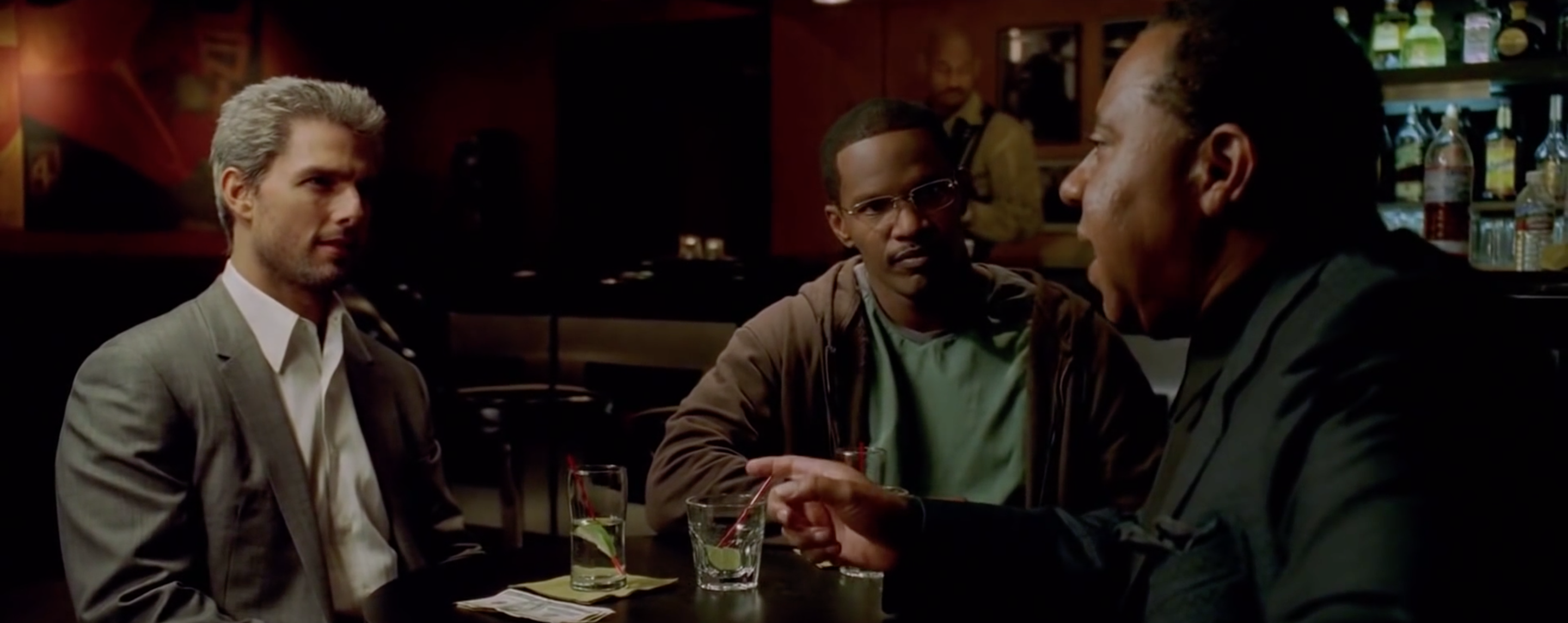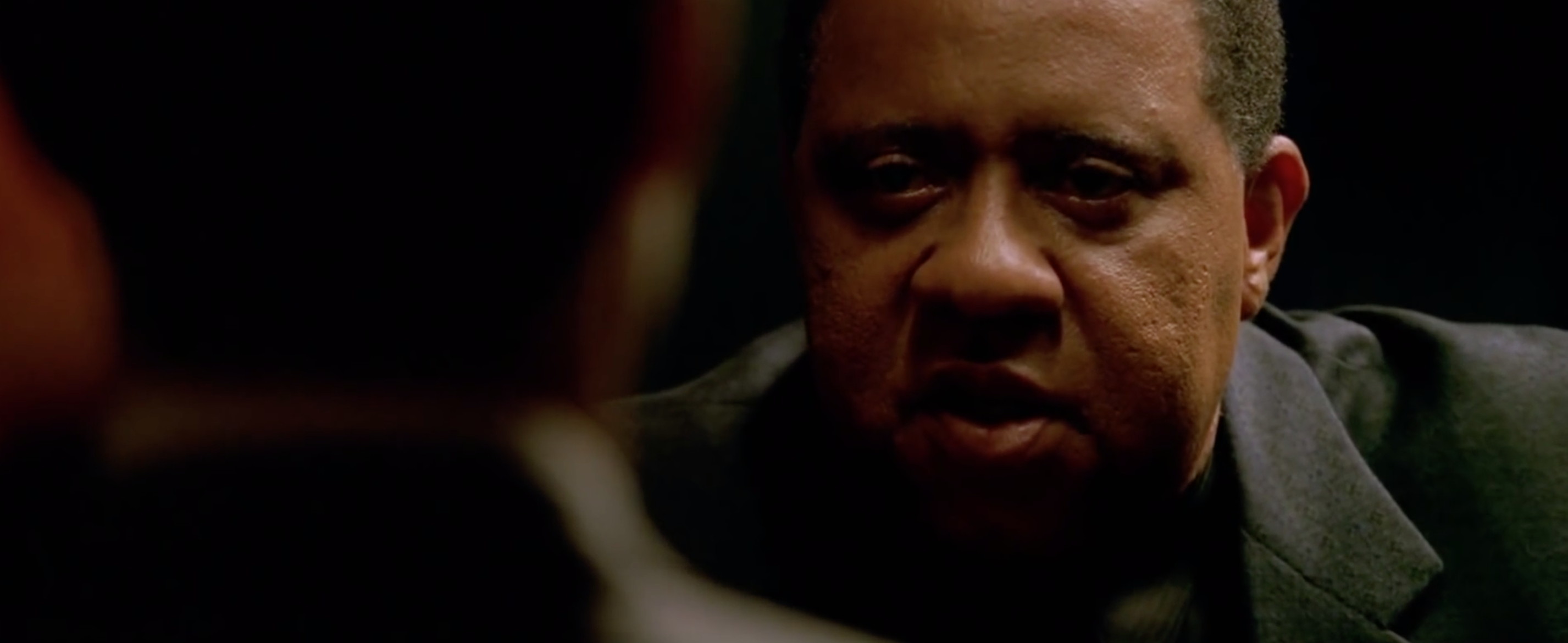Michael Cusumano here to take us back to the Summer of 2004 for the latest film to join the ranks of The New Classics.

Scene: Jazz Club
While Collateral has both feet down in the realistic, that trademark Michael Mann style is just intoxicating enough to make my mind wander to the mystical. I can't help but view Mann’s thriller as a modern retelling of Bergman's The Seventh Seal. Tom Cruise’s Vincent is the Grim Reaper and Jamie Foxx’s Max is von Sydow’s knight, granted a temporary reprieve because he has piqued Death’s interest...
The episodic nature of the film reinforces the impression that Max is accompanying Death on an evening’s rounds. At times it seems like the lack of chapter titles is the only thing stopping Collateral from being a collection of short films. Of these segments, Vincent and Max's stopover at a jazz club is easily the most powerful, playing into the film’s themes seamlessly while having the standalone potency of great short fiction.
At first, the scene feels like a complete detour from the plot. Vincent granting Max a recess from the murder spree as a reward for being a good sport. The thin layer of eccentricity (“Yo. Homies.”) laid over Vincent’s slick über-professionalism is just enough for us to buy that he might indulge in a lark to take in some jazz halfway through a night of contract killing. Cruise’s awed delivery of “He’s terrific” in response to seeing Daniel, the club owner, play trumpet seems completely sincere.
What follows is an elegiac meditation on the film’s themes via a showcase for Barry Shabaka Henley as Daniel. The two leads cede the floor to Henley as he recounts the times he met then jammed with Miles Davis, followed by a brief poignant epilogue summing up how he was never quite able to fulfill the promise of that opportunity.

Henley’s is a first-round draft pick for the one-scene performance Hall of Fame. He is completely engrossing without a whiff of self-conscious dramatic audition monologuing about him. You can tell he’s told this story a thousand times but still can’t help but get excited by it. Nor does he overplay the downshift into disappointment when he refers to his dashed dreams and the “other things” that kept him from following up on his musical career, the "other things we soon realize being a life of crime that is moments from resulting in his death at Vincent's hands.
That the scene works as a reflection of Foxx’s character without feeling the least bit heavy-handed is further proof of Henley’s brilliance.
Cruise is an excellent foil, maintaining the tension without trying to steal spotlight from the guest star. I cannot abide critics who claim Cruise isn’t a quality actor anymore. (I wouldn’t have pegged Cruise as modern heir to the fearless action legacy of Buster Keaton but here we are). Still, I confess I miss the days where Cruise could be as surprising as he is here. Vincent draws us in with his verbal quirks and his unexpected sense of irony, tempting us with the possibility of humanity under that sleek killer shark surface, only to reveal a bottomless emptiness at his core. Crucially, for all he toys with his prey, we never doubt Vincent will kill Max when the moment arrives.

The cabbie that picked up a hitman. That was the irresistible hook that kept Stuart Beattie's script bouncing around Hollywood until it settled on this perfect alchemy of filmmakers and stars. But what keeps my memory forever wandering back to this film isn't the catchy premise or even the spectacular action - this is a Mann film after all - it is the odd interludes amid the violence. And the bone-deep sense of regret in the face of implacable death.
Often times the connective thematic tissue in action thrillers is the stuff eye-rolls are made of. Like Fast and Furious’s insistence that all the spectacle is really about family. Spare me. In Collateral it doesn’t just avoid feeling tacked on, it permeates the whole film. Even the details of the life or death question Vincent poses Daniel about Miles Davis reflects on the dashed dreams of Foxx and Henley’s characters. And of course, Vincent never intended to let Daniel go even if he got the question right.

Previously on The New Classics:
- A whole movie, spinning off a stealth inflection point
- A terrifying man pauses for reflection
- Naked desperated violence in an all-time great fight scene
- A villain collapses in one of the great comeuppances